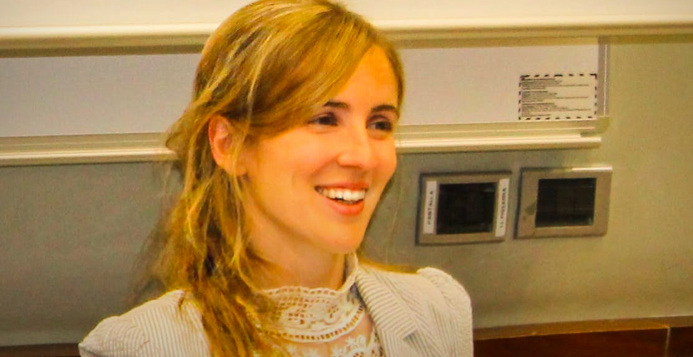01.07.2021 - 14:27
|
Actualització: 01.07.2021 - 16:27
The new Catalan foreign minister, Victòria Alsina, believes that the pardons to the nine political prisoners who spent three and a half years in jail over the 2017 referendum is “not the end of the conflict between Catalonia and Spain.” In an interview with Catalan News, she said the Spanish government decision last week is only a “partial solution” that affects those who were behind bars and their families, but is not a way out of the decade-long independence issue.
Indeed, she backs her government in saying that the aim of “a wide majority” of the population is to exercise the right to self-determination, that is, a Scotland-like referendum on independence accepted by the Spanish government. That is why she made clear that the Catalan cabinet will address public and private institutions abroad to explain to them that the pardons are not “a global solution” to the conflict. Alsina suggested that the decision to lift their convictions was a measure taken only after pressure by the international community.
“It is no coincidence that the pardons were announced the same day as the Council of Europe report” she said, referring to the parliamentary assembly of the supranational body last Monday in which Spain was urged to release the prisoners and withdraw the extradition requests to the former cabinet members now in exile, including exiledc president Carles Puigdemont. For her, the decision from the Council of Europe, which also included requesting Spain to review the crime of sedition in its criminal code – for which the nine leaders pardoned were convicted – is “one of the top victories in the European political arena” of the independence campaign of the past few years.
European justice
All nine formerly jailed leaders are expected to take their cases to the European Court of Human Rights – three of them have already –, which may take into account the Council of Europe decision. The separate decisions from the Belgian, German and Scottish judiciaries to not extradite the exiled officials for the past three and a half years is, for her, another argument to understand the move to pardon them.
Barely two hours after the imprisoned leaders were released on Wednesday, Catalonia and Spain’s governments announced the first in-person meeting between both of their presidents since Pere Aragonès took office in Barcelona. It was hold on 29 June 29 in Madrid and it is might be the beginning of an era of regular bilateral talks between cabinets. Spain’s Pedro Sánchez said the pardons had been approved in order to encourage talks and “harmony” – but the summoning of 41 high-ranking officials on Tuesday, 29 June, before Spain’s Court of Auditors, is blurring this scenario.
In April, the institution summoned numerous Catalan government figures from between 2011 and 2017, including former presidents Carles Puigdemont and Artur Mas, as well as some until-now jailed leaders, over foreign policy expenditure possibly linked to the independence referendum. The tribunal considers that the executive spent public money abroad to promote Catalonia’s attempt to split with Spain and deem that around 40 politicians and figures should be held personally liable for this, also including former minister Andreu Mas-Colell, who has received a wave of global support, including that of 33 Nobel Prize winners.
In the interview with Catalan News, Alsina said that the Court of Auditors seeks to “frighten” high-ranking officials, but as for her, she has “no fear.” For the minister, the open case is “even more flagrant” than others, referring to the 2017 referendum trial, because the Spanish Constitutional Court had banned the vote, but “there is no Constitutional Court decision banning Catalonia’s foreign action.” Moreover, she thinks it is “nonsense” to accuse some leaders of misuse of public funds because the administration supposedly affected by the alleged crime “has never felt affected.” Alsina also reminded that the Court of Auditors “is not a court despite its name,” because it is an “administrative body without judges.” Yet, she thinks the international public opinion could be misled by the institution’s name.


